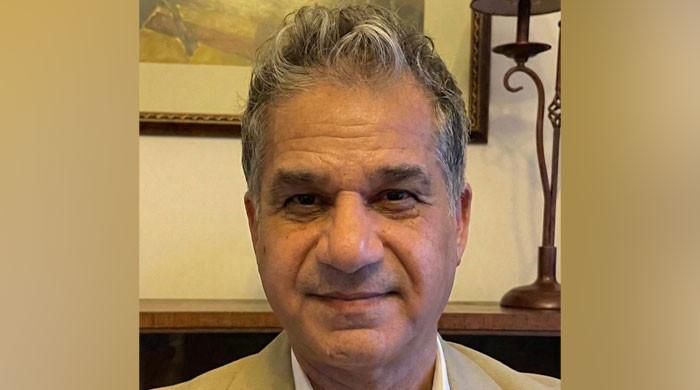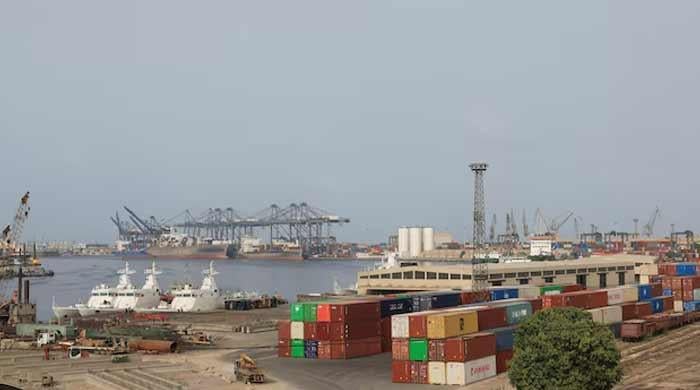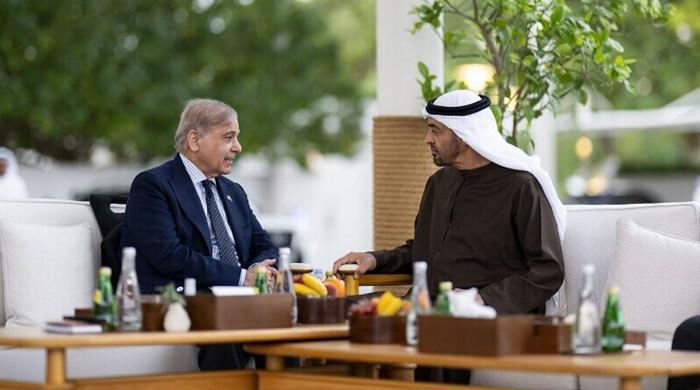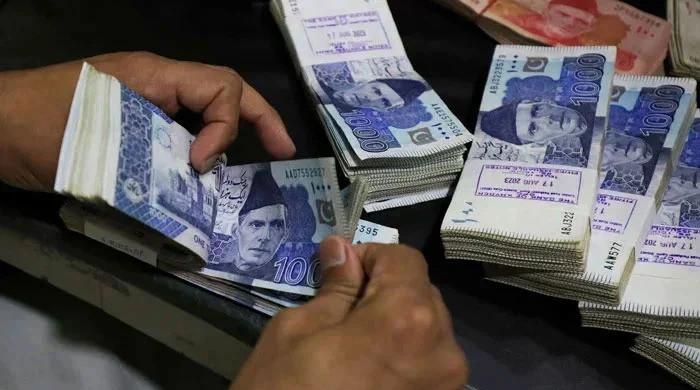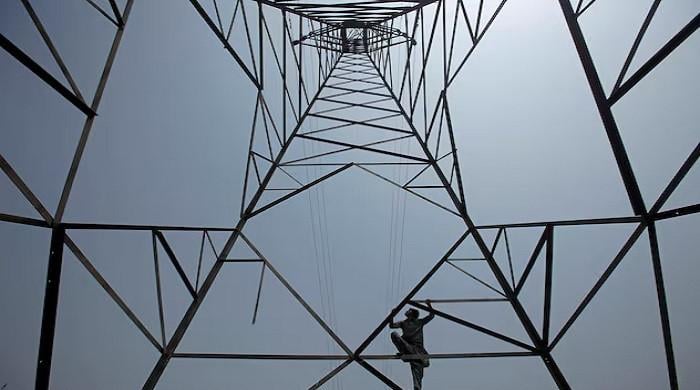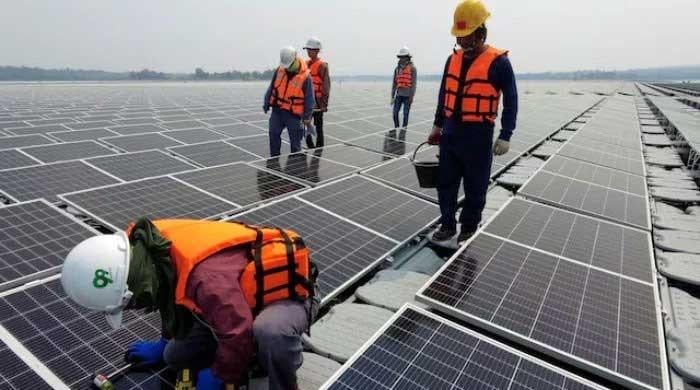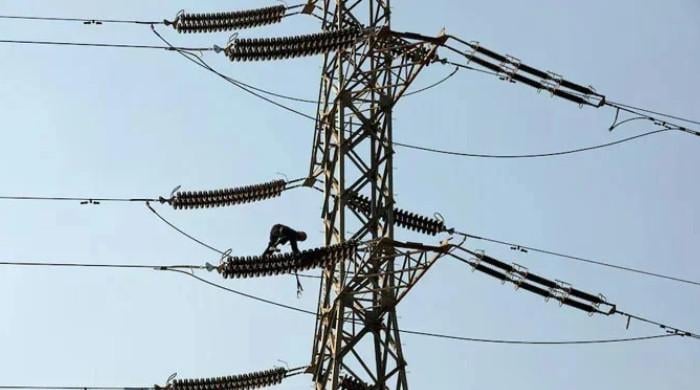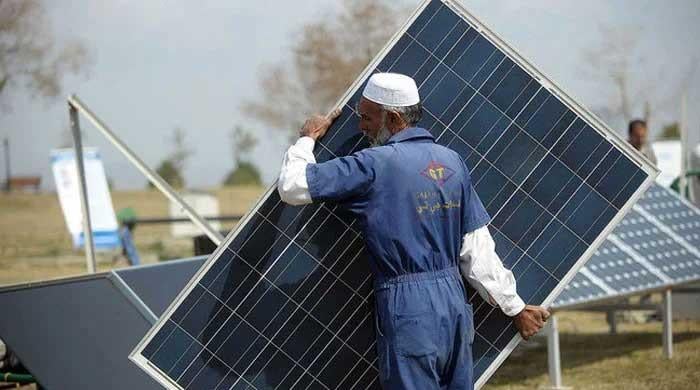IMF says Pakistan’s foreign affairs have no bearing on bailout
"EFF-supported policies are not related to Pakistan’s foreign affairs,” IMF resident representative says
June 07, 2023
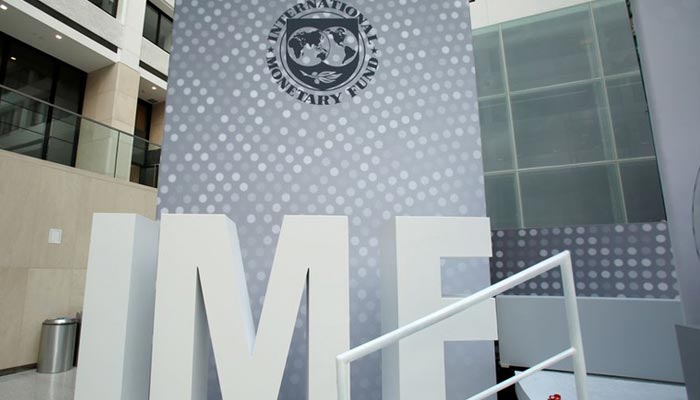
- Loan deal has gone off course at least three times over past two years.
- Some believe Pakistan’s inclination towards Iran and China has irked US.
- "EFF-supported policies are not related to Pakistan’s foreign affairs,” IMF says.
The deepening distrust between Pakistan and the International Monetary Fund (IMF) can arguably be pinned, in part, on political and geopolitical developments, catalysing a situation that can be likened to a ticking time bomb, waiting to go off. Uncertainty remains far from over. Here’s why.
Officials on either side of the negotiation table have been constantly accusing each other of the holdup with Pakistan struggling to enact necessary reforms and IMF not showing any leniency.
This rigidness of the multilateral lender’s stance gave rise to many conspiracy theories.
The current bailout programme was started in 2019 by the former Pakistan Tehreek-e-Insaf-led government.
That loan programme has gone off course at least three times over the past two years, with each new finance minister looking to renegotiate.
The incumbent finance minister, Ishaq Dar, was appointed in September. He was expecting an IMF team to arrive in October to resume discussions, but it didn’t arrive until late January, a prolonged delay that Dar called “abnormal.”
While the Pakistani authorities are trying to bring the lender of the last resort around using every possible tactic, the IMF officials are taking their own sweet time as the trust deficit has forced them to reevaluate all claims made by Islamabad regarding meeting the pre-requisites of the loan programme.
With all sectors of the economy in a tailspin — a situation exacerbated by the constant devaluation of the Pakistani rupee, record-high inflation, and continued political turmoil — Prime Minister Shehbaz Sharif’s government is in discussions to complete the ninth review and conclude the existing deal.
The government plans to renegotiate a new programme with the Fund immediately after the announcement of the federal budget for the fiscal year 2023-24 — which is expected to be unveiled on June 9 (Friday).
But it’s hard to see any more of the necessary belt-tightening ahead of general elections planned for later this year.
Economists and analysts are growing skeptical whether an IMF deal is going to come through keeping in view the political and economic challenges.
While some believe that Pakistan’s inclination towards Iran and China has irked the US, which in turn has been affecting the timeline of the revival of the programme, the IMF has categorically rejected the claim.
“EFF-supported policies are not related to Pakistan’s foreign affairs,” IMF Resident Representative Esther Perez Ruiz told Geo.tv.
Earlier, former finance minister Dr Hafiz Pasha had also voiced concerns regarding the relations with Iran.
“Now that is a new relationship. The situation has changed in this regard as Saudi Arabia and Iran have signed an agreement of normalising relations. So that, kind of, has improved the Middle Eastern situation and Pakistan, at this point, has to honour some past commitments — like the lines that Iran laid and are still pending. So, there is a possibility, that America which is a notable member [of the IMF] might raise an objection to it,” he said, adding "Until now, he doesn’t feel this has impacted the ninth review".
Bloomberg cited S&P Global Ratings as saying: “Pakistan’s gross external financing needs as a proportion of current-account receipts plus usable reserves is estimated to rise to 139.5% in the fiscal year 2024 from 133% in 2023.”
“We consider the IMF programme to be a foundation for important fiscal policy reforms,” Andrew Wood, a sovereign analyst at S&P in Singapore, was quoted as saying by Bloomberg.
“Agreement on the current review cycle could also coalesce more confidence for other bilateral and multilateral lenders to Pakistan.”
Last week, Defence Minister Khawaja Asif strongly criticised Nathan Porter, the Pakistan chief of the IMF, for his recent statement, which is being perceived as an interference in the country's internal affairs.
Typically, the IMF refrains from commenting on domestic political matters. However, in a statement, Porter expressed the IMF's hope for a peaceful resolution in line with Pakistan's Constitution and the rule of law.
Dr Aisha Ghaus Pasha, the Minister of State for Finance and Revenue, promptly responded to Porter's statement, emphasising that the IMF Pakistan chief should refrain from interfering in domestic political affairs.
On Tuesday, in an email response to Bloomberg, the Ministry of Finance said they were optimistic about finalising a deal with the IMF before the budget on June 9.
The ministry stated that Pakistan has lined up $4 billion in external financing and aims to secure the remaining $2 billion to fulfil the $6 billion target required for the revival of the stalled bailout.
Despite a notable reduction in the current-account deficit, Islamabad remains dedicated to completing the IMF programme and has already demonstrated its commitment.
The ministry also emphasised Pakistan's determination to mobilise additional liquidity, despite the challenging circumstances.





